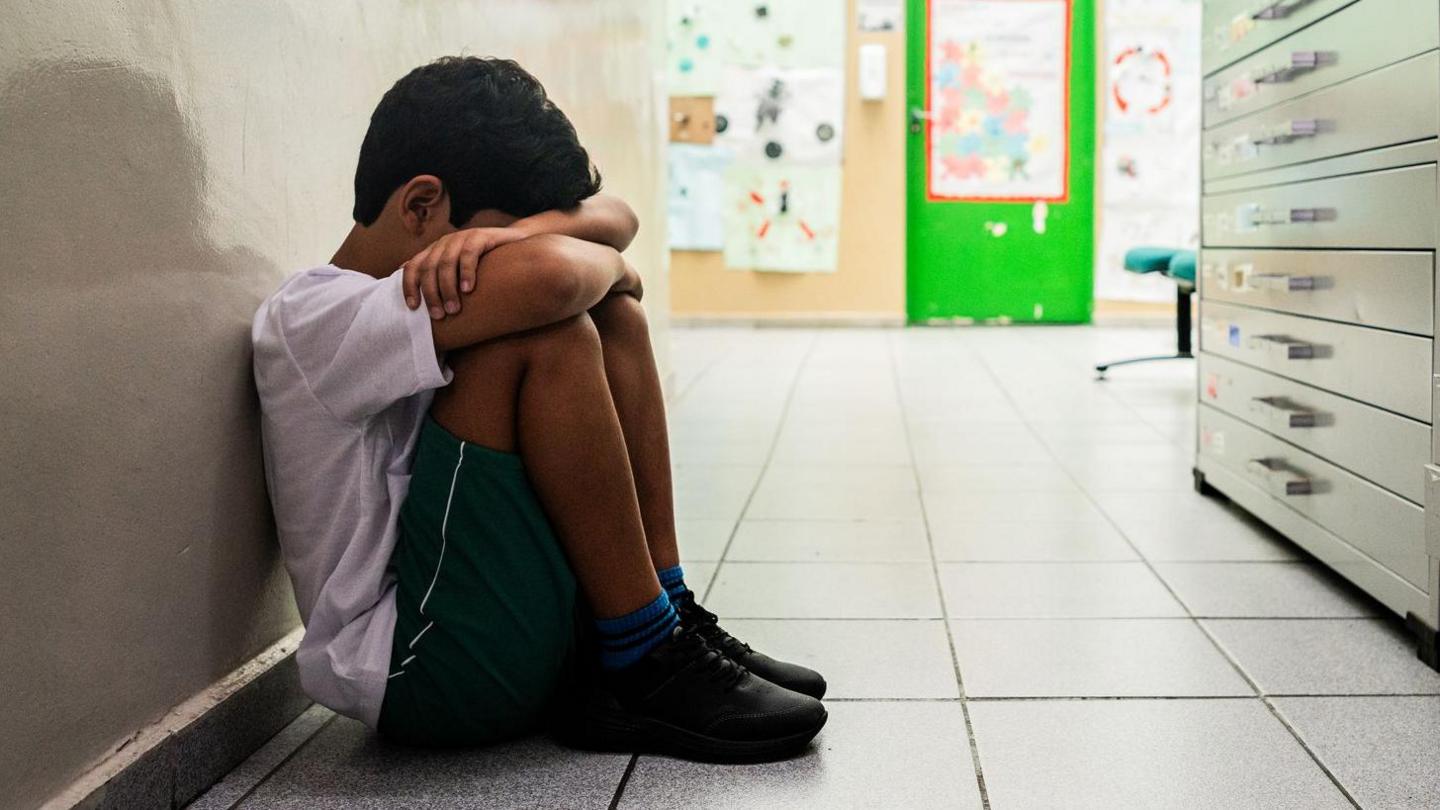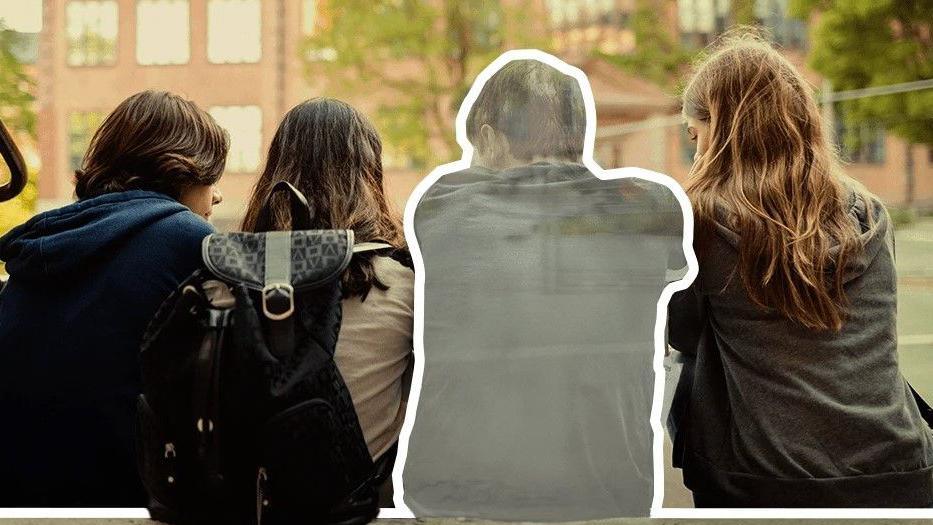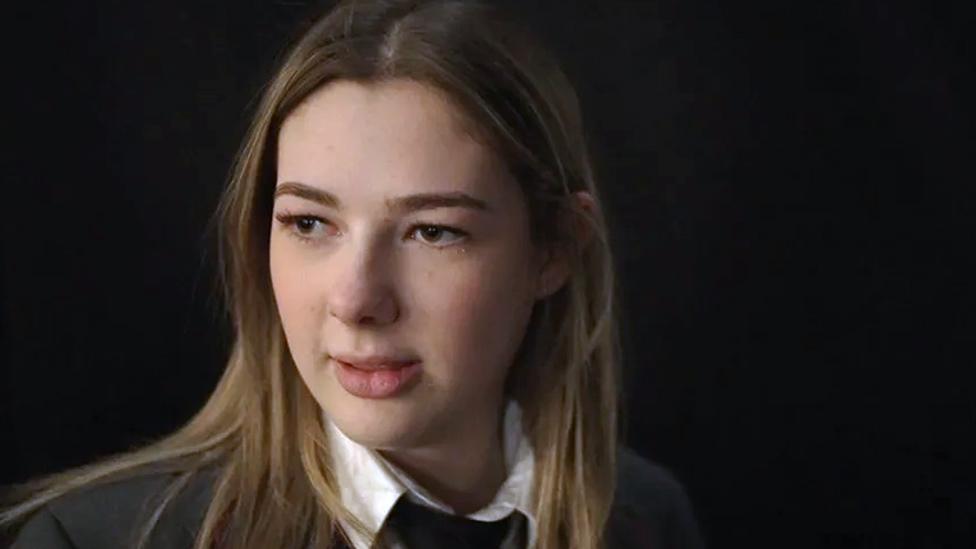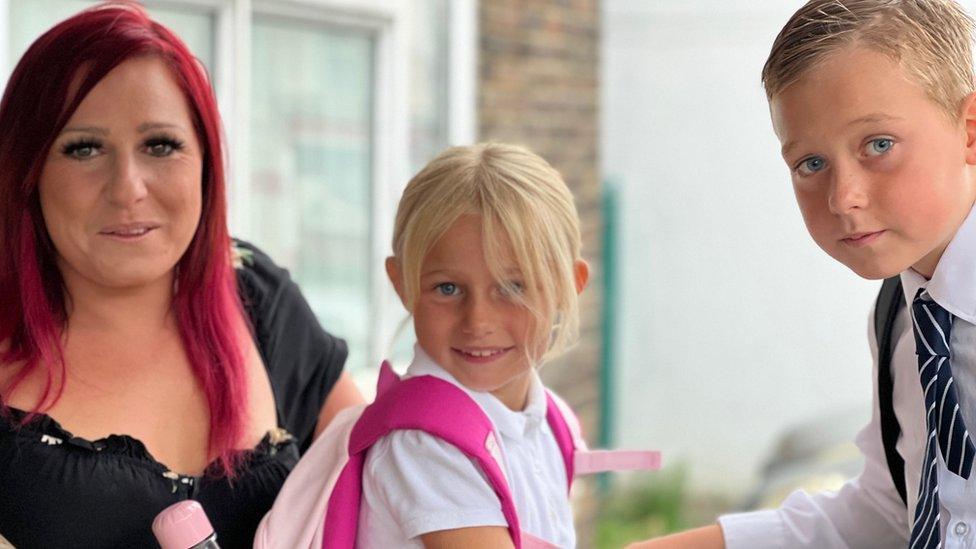What's behind rise in school avoidance?

The number of children missing school in Oxfordshire has risen sharply
- Published
The number of children missing more than half of school in Oxfordshire has increased more than five-fold over the past 10 years.
Many of these cases are now referred to as "ghost children", with the cause of the absences often put down to emotionally-based school avoidance (EBSA).
The term was previously sometimes called school refusal but this has become less common, with many parents feeling it has negative connotations.
Consultant child and adolescent psychotherapist Gerry Byrne said the "problem has doubled [in the UK] since the [Covid] pandemic".
What is EBSA?
Emotionally-based school avoidance is when a child is regularly absent from school, or cannot attend at all, due to anxiety or other emotional or physical distress.
According to a report in the British Medical Journal, external (BMJ), it "does not constitute a psychiatric diagnosis in its own right but often co-occurs with diagnoses of anxiety and/or mood disorders".
The BMJ found EBSA resulted in missed schooling for an estimated 1%–5% of the school population across England.
The total number of pupils in Oxfordshire missing more than half of school has risen sharply from 427 in 2015/16 to 2,305 in 2023/24, according to Department for Education (DfE) figures.
Common factors
Mr Byrne, from Uffington, said "things that happen in the classroom or in the school are often the starting point".
"Whether that's the experience of bullying, academic pressure or being overwhelmed by the sheer size of the class," he said.
In each case, there will be a number of different factors but the common ones will be "school pressures, sometimes family complications, mental health difficulties within the family and some background of separation anxiety or low self-confidence", he added.
Feeling overwhelmed
Mr Byrne, who has spent more than three decades working in specialist children services across Oxford, said the natural state for any child was "to be curious, to be social and to trust and be able to learn and to thrive".
But this could only happen, he said, if children had a "sense of a peer community, of fellow students who you are comfortable being with, and you have sensitive, supporting care and your curiosity is stimulated."
It was not about a child saying "I'm just simply not doing something", he explained.
"It's very much a feeling of 'I can't do it'.
"If they're saying 'I won't' then it's coming from the only solution they can offer to a situation where they feel overwhelmed."
Impact on education
According to the BMJ report, EBSA can have "significant negative consequences for children and their families".
Only half of pupils with an attendance rate below 90% achieve the expected standard in reading, writing and mathematics at the end of Key Stage 2, the report said.
This compares with 71% of pupils with an attendance rate of more than 99%.
The BMJ report said "even when children are managing to attend school", the anxiety associated with EBSA "may impair learning in the classroom".
"Lower attendance is further associated with an increased likelihood of experiencing mental health problems, fewer friendships and poorer employment prospects," it added.
Help for parents
BBC Bitesize has six top tips for parents to protect their mental health while supporting a child with EBSA.
Mental health charity Anna Freud, external features videos with parents who have children with EBSA, as well as other advice and resources.
The charity YoungMinds, external has a guide for parents and carers who have a child with school anxiety or EBSA.
BBC Action Line can offer further advice for parents on a number of issues touched on here.
In Oxford, charity Ark-T runs therapeutic sessions at Orchard Meadow Primary in Blackbird Leys, where small groups of children work on art-based projects in a quiet, protected environment.
Head teacher Heather Richards said missing school could become a "vicious circle" but that the sessions had led to "real improvement" in attendance figures.
"They have a stronger connection with some of the children in their year group," she added. "They also build their confidence."
National effort
In a statement, the DfE said the government had "inherited a broken system", with children and families "facing poor outcomes and barriers to opportunity".
It said: "The case for tackling the epidemic of school absence could not be clearer: improved grades, higher wages, better life chances.
"Tackling this issue is everyone's responsibility – government, schools, parents, and children – and we need a national effort to get our kids back in the classroom.
"As part of our plan for change, we are determined to turn the tide on poor attendance and break down barriers to opportunity - whether it's through attendance mentors, free breakfast clubs, improved mental health support, additional investment in family support, or more focus from Ofsted."
Get in touch
Do you have a story BBC Oxfordshire should cover?
You can follow BBC Oxfordshire on Facebook, external, X (Twitter), external, or Instagram, external.
- Published14 July

- Published24 April 2024

- Published27 September 2023
